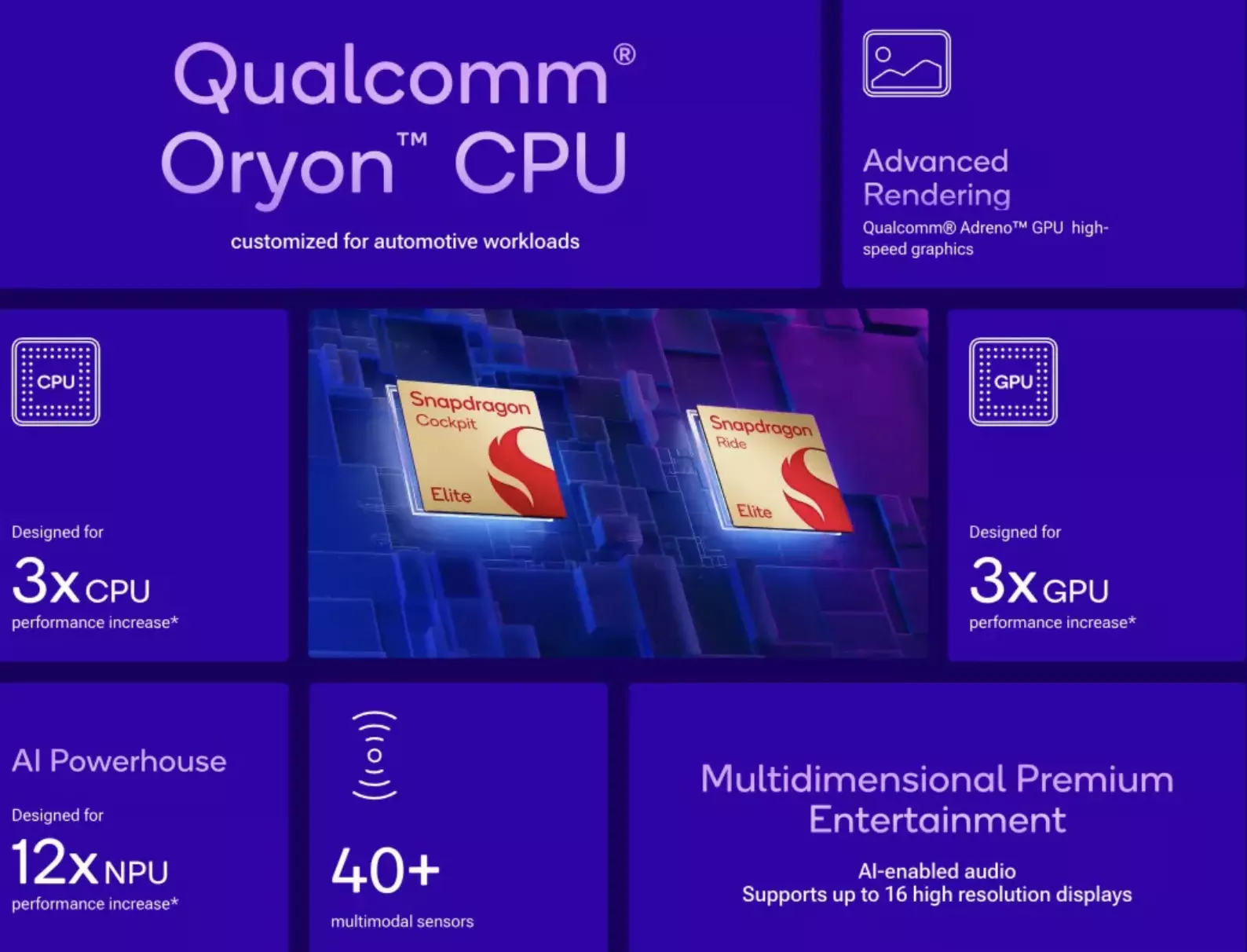Qualcomm accelerates automotive AI with latest Snapdragon chips
Qualcomm accelerates automotive AI with latest Snapdragon chips

While smart glasses and wearables have been in the spotlight, the automotive market is poised to become the most impactful new category for personal devices. With the evolution of software-defined vehicles (SDVs) and advancements in assisted and autonomous driving, the automotive sector is emerging as a significant player in the tech industry.
Just as AI has revolutionized other device categories, it is now making significant strides in the automotive market. Qualcomm’s recent announcement at the Snapdragon Summit in Maui highlights this trend with the introduction of their next-gen automotive chips: Snapdragon Cockpit Elite and Snapdragon Ride Elite. These chips, set to start sampling in 2025, are designed for infotainment and assisted/autonomous driving features in premium vehicles.
The Snapdragon Digital Chassis:
These new chips are part of Qualcomm's Snapdragon Digital Chassis, which debuted in 2022. They feature the Oryon CPU architecture, a significant leap in performance and power efficiency compared to previous Qualcomm CPUs. The Oryon architecture is also a key component of the Snapdragon X Elite chips for PCs and the new Snapdragon 8 Elite mobile CPU for smartphones.
Performance Enhancements:
The Snapdragon Cockpit Elite and Snapdragon Ride Elite offer substantial improvements over previous generations, including:
3x increase in CPU performance
3x increase in Adreno GPU performance
12x boost in Qualcomm's Hexagon NPU performance
These enhancements enable more advanced AI capabilities within vehicles, improving both infotainment and assisted driving features.
Enhanced Cockpit Experience:
The increased processing power allows for more advanced voice-based personal assistants and larger, more capable language models. This could lead to more intuitive interactions with the vehicle, such as learning driving and music preferences or automatically rescheduling reservations if stuck in traffic. The Cockpit Elite chip supports up to 16 high-resolution displays, providing diverse entertainment and information options, and separate audio feeds for different areas of the vehicle.
Advanced Driving Capabilities:
The Ride Elite chip supports over 40 multimodal sensors, including 20 high-resolution cameras and lidar, to enhance safe driving, whether manually controlled or using assisted features. The enhanced processing power allows for more sophisticated AI models, improving autonomous driving capabilities.
Safety Standards:
Both chips adhere to critical functional safety standards, including ASIL-D and ISO 26262, ensuring safe operation in the event of digital component failures or software crashes.
Qualcomm’s Diversification Strategy:
Qualcomm's entry into automotive computing marks a significant expansion of its product line. With over 20 years of experience providing communications and telematics solutions to carmakers, Qualcomm’s foray into automotive computing is a more recent development. The company expects cars with these new chips to be available by 2026, thanks to the foundation laid with the Snapdragon Digital Chassis platform.
Strategic Partnerships and Future Prospects:
Qualcomm's partnerships with BMW, GM, and Rivian underscore its promising future in the automotive market, with expected positive impacts on the company’s business results starting next year. This announcement highlights Qualcomm's strategic investment in Oryon CPU technology across multiple areas, from PCs and smartphones to cars.
Expanding AI Capabilities:
By integrating a similar NPU architecture across various categories and developing its cloud-based Qualcomm AI Hub software portal, Qualcomm is encouraging AI-powered app development. This opens intriguing possibilities, such as repurposing computer vision models originally built for smartphones for automotive sensing applications.
These announcements illustrate Qualcomm's comprehensive strategy and commitment to an AI-driven future. While some may view this as capitalizing on generative AI hype, Qualcomm’s detailed approach suggests a genuine belief in an imminent and transformative AI future in the automotive industry.

